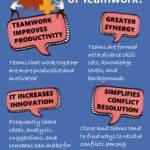
How to Reach a Win-Win Agreement
A win-win agreement can allow both parties in an argument to feel that they have reached an ideal and satisfactory agreement. It’s particularly useful when you have an ongoing relationship with the other party, and you wish to remain on good terms.
“Principled negotiation” is a common win-win strategy, devised by Roger Fisher and William Ury, that can help you to negotiate an agreement in a civil way.
The technique consists of five stages, or principles:
- Separate the people from the problem.
- Focus on interests, not positions.
- Invent options for mutual gain.
- Use objective criteria.
- Know your BATNA (Best Alternative To a Negotiated Agreement).
In a negotiation where you don’t expect to deal with the person concerned again, and you don’t need their continued goodwill, it may be appropriate to seek a “bigger piece of the pie” for yourself. This “win-lose” approach, often called “distributive bargaining,” is usually used for negotiating the price of goods or services (for example, a house or a car).
Similarly, when the stakes are high, it may be appropriate to use legitimate “gamesmanship” (pushing the rules to their limits) to gain advantage, but without crossing the line into brinkmanship. But, when you want to have an ongoing, productive relationship with the person you’re negotiating with, these techniques can have serious drawbacks:
- One person “playing hardball” puts the other person at a disadvantage. This may lead to reprisals later.
- If the losing party needs to fulfilll some part of a deal, they may decide to become uncooperative and awkward.
- Using tricks and manipulation during a negotiation can undermine trust and damage teamwork.


